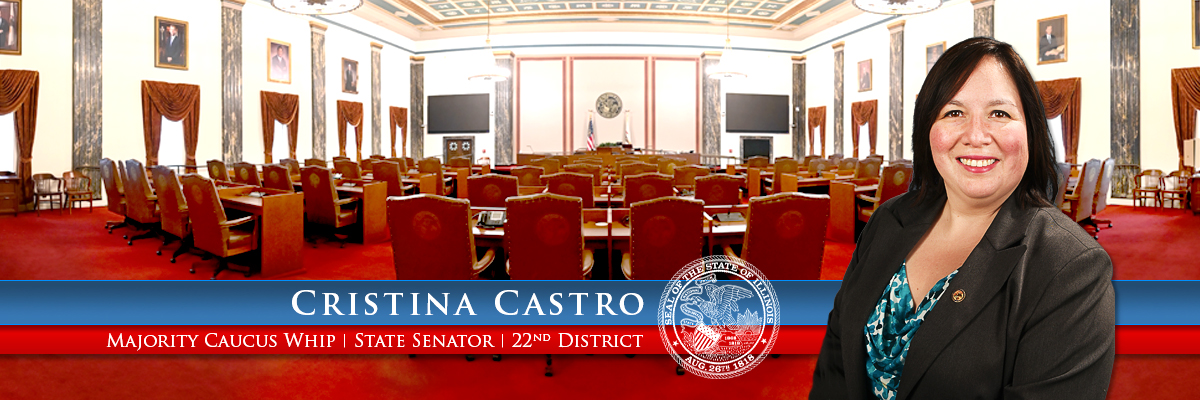 SPRINGFIELD – State Senator Cristina Castro voted for a bill Thursday that would clarify language in portions of the Pretrial Fairness Act and ensure a smooth transition to implementing the law.
SPRINGFIELD – State Senator Cristina Castro voted for a bill Thursday that would clarify language in portions of the Pretrial Fairness Act and ensure a smooth transition to implementing the law.
“These historic reforms are a result of collaboration between a diverse group of advocates, law enforcement, states attorneys, victims’ rights organizations and other stakeholders,” said Castro (D-Elgin). “Today, along with my colleagues in the Senate, we voted to preserve and reaffirm the Pretrial Fairness Act’s commitment to improving equity, safety and justice in our state’s criminal legal system.”
A joint effort, the bill provides clarification to common misconceptions spread about the Pretrial Fairness Act portions of the SAFE-T Act since its passage in January 2021. In recent months, a smear campaign against the law overwhelmed social media and headlines of fake newspapers, leaving many Illinoisans confused about what the law actually does.
House Bill 1095 clarifies that judges can issue warrants and summons, provides a reminder that any person who poses a threat to the community or someone else – including trespassers – can be arrested, and clarifying court authority when it comes to electronic monitoring, among other items.
The measure also adds certain charges – including forcible felonies, hate crimes and attempts of crimes that are otherwise detainable – to the list of crimes that qualify someone for detention. Sponsors added these crimes with the goal of ensuring that those who pose a risk to the community should be detained while those who simply lack bail money and do not pose a threat should not.
“Giving judges the authority to detain individuals who are a danger to public safety based on the facts of their case is the right thing to do,” said Castro. “I am proud to support legislation that not only puts an end to wealth-based incarceration in Illinois but also centers victims’ rights and puts public safety first.”
Under House Bill 1095, the intent of the Pretrial Fairness Act remains the same – the bill merely clarifies language to ensure it cannot be interpreted out of context.
House Bill 1095 passed the Senate Thursday and will move to the House for consideration.





